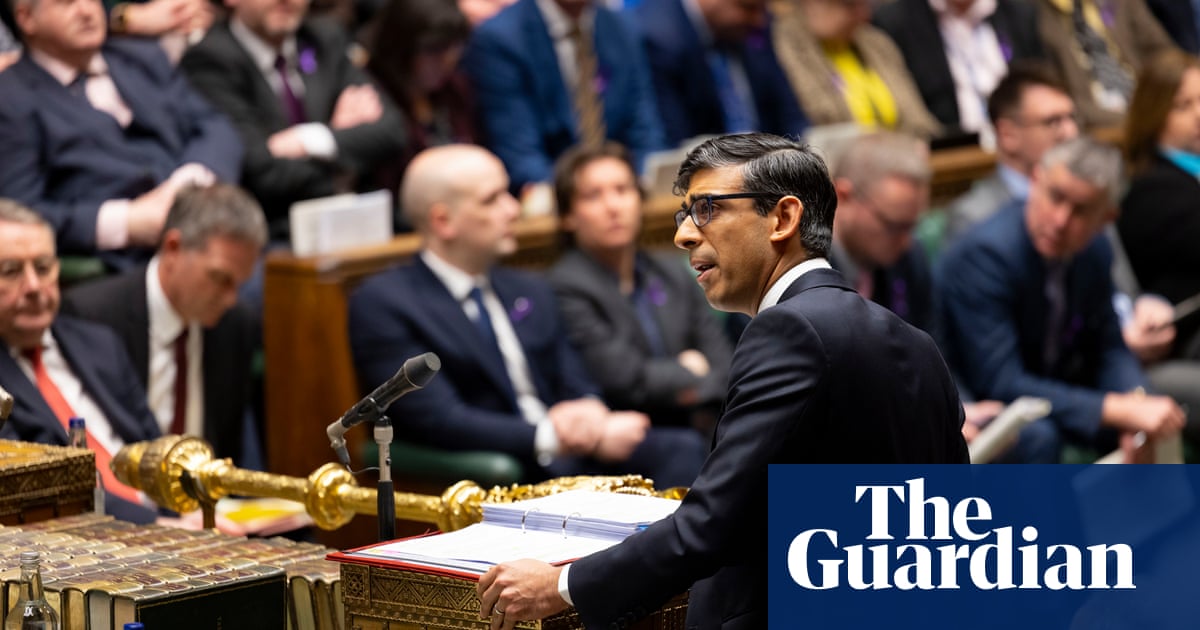
Links between Liz Truss’s Department for International Trade and a powerful rightwing thinktank have come under fresh scrutiny, after the government defeated efforts to enshrine high food safety and animal welfare standards in UK law.
Last month, Truss appointed the former Conservative MEP Daniel Hannan and the former Australian prime minister Tony Abbott to the Board of Trade, which is intended to help shape post-Brexit trade policy. Hannan is the president of the Initiative for Free Trade, while Abbott sits on its board.
Amendments to the government’s agriculture bill, which were aimed at protecting animal welfare standards and received the backing of several prominent Tory MPs, were struck out on Monday evening in the House of Commons.
Hannan vociferously criticised the amendments, calling Labour’s approach “almost North Korean”.
In a 230-page “ideal” US-UK free trade agreement, published by the IFT in 2018, the group warned against protections for farmers being smuggled in under the guise of public health or animal welfare – and urged the opening up of the NHS to private sector competition.
Abbott sits on the IFT’s international board, as one of a group of “statesmen who have liberalised their own economies”. He had previously boasted that he succeeded in striking trade deals with China because he had not been “sidetracked by peripheral issues such as labour and environmental standards”.
Labour has expressed concern about the influence of Hannan, Abbott and their worldview on US-UK trade negotiations.
The shadow trade secretary, Emily Thornberry, said: “When it comes to a UK-US trade deal, the agenda of Daniel Hannan and the rightwing thinktanks has always been clear: open up our markets to all US meat imports, decree that whatever is legal there is legal here, and remove any domestic standards getting in the way.
“Liz Truss has always been close to that agenda, but now she has put its architects in positions of direct power and influence within her department. That is not just deeply worrying for our food safety, our animal welfare standards, and our farmers, but also for our democracy – no one voted to put Daniel Hannan or Tony Abbott in control of our trade policy.”
The IFT, whose launch was hosted by Boris Johnson at the Foreign Office, says its mission is to “recapture the moral case for open commerce”.
The IFT worked with Washington’s free market Cato Institute to bring together 11 conservative thinktanks and draw up a radical “ideal” US-UK trade deal, which recommended opening up the healthcare sector to foreign competition along with a bonfire of consumer and environmental regulations.
“Health services would benefit from foreign competition, although we recognise any change to existing regulations would be extremely controversial,” the blueprint said. It recommended testing the waters by opening up education and legal services first.
On food standards, the report said a deal should ensure “measures to protect animal, human, or plant health are based on sound science and that the parties do not adopt measures that are disguised barriers to trade and competition”.
Speaking at the report’s London launch, its lead editor, Dan Ikenson, the director of the Cato Institute, was blunt about what it could mean for the NHS. “Healthcare is a service, we call for opening services to competition. And I know some people are worried about what happens to the NHS, for example. We think competition is a good thing and it would lead to better quality healthcare,” he said.
Truss, then chief secretary to the Treasury, was in Washington on that day, speaking at a separate meeting hosted at the Cato Institute. She was introduced by Ryan Bourne, the former head of public affairs at the rightwing Institute for Economic Affairs (IEA) and a champion of Truss’s swashbuckling trade ideals. Truss said that “a thicket of regulation and control ... is holding people back, which is about managing risk rather than taking opportunities”, adding: “Our economies work best at full tilt, when individuals and businesses are liberated.”
During a three-day visit to the US capital, Truss also held meetings with three of the five other US contributors to the IFT report: the Heritage Foundation, the Competitive Enterprise Institute and the American Enterprise Institute.
DIT officials recently deleted two meetings between Truss and the IEA – one of the UK thinktanks involved in the project – from the public register of contacts with ministers, claiming they were personal discussions about trade. The meetings were later restored to the record. Thornberry accused Truss of trying to “hide her dealings with these thinktanks”.
A DIT spokesperson said: “The NHS is not, and never will be, for sale to the private sector, whether overseas or domestic. The government is committed to the guiding principles of the NHS – that it is universal and free at the point of need.”
In Monday’s debate, the junior environment minister Victoria Prentis promised a food white paper within six months, and insisted “the government are firmly on the side of British farmers and high standards”.
The Board of Trade is expected to meet quarterly, and its advisers will “engage extensively with industry, communities, farmers and consumer groups across the UK, to ensure a range of voices are heard as the UK develops its independent trade policy”, the DIT said.












